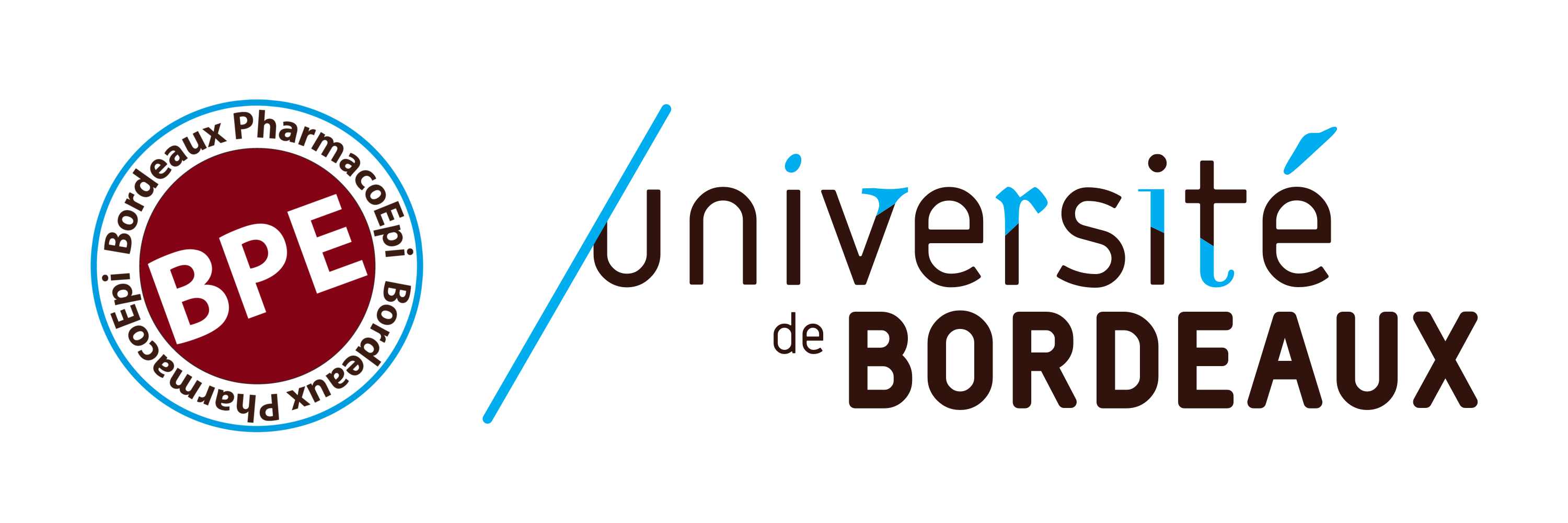Collaborations
Network


Numerous partnerships and collaborations at both the national and international levels:
BPE academic status (INSERM label, affiliation with the University of Bordeaux and the Bordeaux Teaching Hospital) gives to the platform a privileged position with access to a large network of clinical and methodological experts with in-depth knowledge of the French healthcare system.
Collaborations with international institutions (e.g., Utrecht University, Aahrus University, Harvard University…) and a broad network of recognized partners: enable to design and the execution of distributed analyses across multiple European and North America databases according to the highest methodological standards and state-of-the-art tools:
Founding member of the SIGMA consortium formed by ENCePP centres with extensive expertise and experience in the conduct of real-world evidence research ❖ |
Member of the international Vaccine Monitoring Collaboration for Europe VAC4EU which promotes collaborative studies on vaccine evaluation ❖ |
Involved in the creation of the ConcePTION Common Data Model and designated the Extract Transform and Load process (ETL) to map SNDS data to this data model. The BPE also contributes data from the SNDS to the European IMI-ConcePTION project ❖ |
Active member of the OHDSI collaborative, BPE has designated the ETL to apply the OMOP CDM to SNDS data, making it suitable for distributed analyses on this network, and methodological research ❖ |
Collaboration in post-authorization safety studies within the framework of the European consortium Eu-ADR ❖ |
Study Design
All of these skills enable the BPE to respond to the various challenges of real-world research by selecting, the most suitable source of data (e.g., field data, secondary data, linked data), design (e.g., cross-sectional study, cohort, case-control, self-controlled), and tools (e.g., adjustment, propensity score, clustering) adapted to the research question.
This allows the BPE, to cover, inter alia, the following fields of investigation:
- Identification and description of target populations: incidence/prevalence of a disease or an exposure, burden of a disease, definition of events of interest, such as adverse drug reactions, in particular through the development of case-identifying algorithms.
- Utilization studies: utilization of health technologies, including drugs (Drug Utilization Studies – DUS) or medical devices, in particular by using new unsupervised machine learning methods, such as clustering to characterize healthcare pathways.
- Post-Authorization Safety Studies (PASS), Post-Authorization Effectiveness Studies (PAES), including quality-of-life studies or cohort event monitoring
- Comparative Effectiveness Research (CER)
- Health economic studies
- Impact assessment studies
- Drug safety signal detection
Studies Conducted

Studies conducted in several therapeutic areas are registered within the HMA-EMA Catalogue of RWD studies, applying for the ENCePP Seal if possible, in compliance with the ENCePP Code of conduct.
Methods
Technical Skills
As Data Access Provider, BPE has developed a strong expertise in the SNDS:
- More than 20 years of experience in health care claims data analysis
- Among 60 studies conducted
- Secure and certified IT environment (« Bulle BPE »)
- « BPE data model » (simplified and optimized SNDS data model for real-world research)
The BPE has developed its capabilities in the following areas:
- Controlling for bias in real-world analyses (HdPS, instrumental variables and self-controlled methods)
- Validation studies
- ETL towards common data models for federated analysis
- Implementation of innovative analytical tools in the SNDS
- Implementation of unsupervised machine learning methods in the SNDS
Large field studies (up to 46 000 patients) in several therapeutic areas (currently on allergenic immunotherapy and COVID-19 vaccines).
The platform has the capacity to develop tailor made tools (such as databases or case report forms) to match study requirements perfectly and optimize patient follow-up.
The BPE has led several studies linking primary collected data to pre-existing data from the SNDS through probabilistic (or indirect deterministic) matching methods.
Direct deterministic matching based on patient social insurance numbers (NIR) will also be implemented by the team in the framework of other ongoing projects.
Real-World Evidence
Consultancy
The BPE brings its expertise to the Health Data Hub with the support of the project teams on both the scientific/methodological aspects and in the programming of SNDS data.
The platform can perform methodological support for any physician / researcher from a public or private team wishing to set up a real-world study.
Training & Education
As a platform of the University of Bordeaux, experience from activities conducted by the BPE is regularly tapped for research and teaching purposes. The BPE platform also often hosts Master and PhD research students.
The master-class format of the BPE Festival conferences allows attendees to be at the forefront of the latest advances in pharmacoepidemiology and public health.
